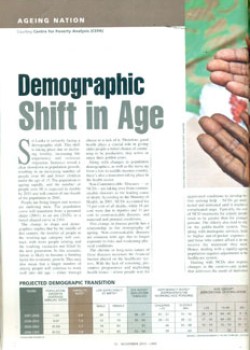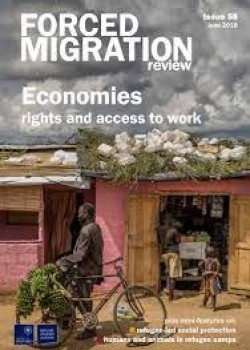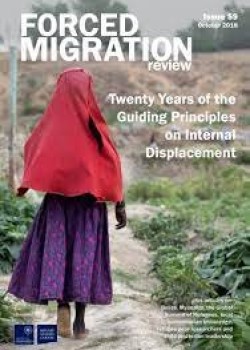
Lanka Monthly Digest (LMD)
Demographic Shift In Age
Publisher: Media Services (Pvt.) Ltd
Place of Publish: Sri Lanka, Colombo
Year: 2012
Series: 12-Nov
Acc. No: 224-J
Category: Journals
Languages: English
The article by Centre for Poverty Analysis (CEPA) talks about the impacts of demographic shift in Sri Lanka. It shows how the population growth has slowed down increasing the amount of elderly people than the children under the age of 15. Due to this change, people live longer, women outlive men and older people continue to work in their elderly age as well. On the other hand, with the transition taking place in the health sector, the demography of ageing is affected, which in the coming years, will take a different curve from a pyramid-shape to a barrel-shape.
Sri Lanka is certainly facing a demographic shift. Statistics have revealed a slowdown in population growth resulting in an increase in the over 60 boundary against a shortage of children above the age of 15. Projections have forecast that by the middle of this century, the number of people in the working age category will contract, while the retiring numbers would increase, leaving a void in the labour force. This would be a significant factor for the economic growth of the country. There is also the relationship with the health sector, which shows that the ageing population is more prone to disease due to lack of physical fitness and exposure to risks. The control of communicable diseases and non-communicable diseases need to adapt to these demographic changes as well. Programmes are needed to increase awareness of these illnesses and improve better lifestyles, and early detection and management of diseases are crucial considerations to be made. The article is a publication by the Centre for Poverty Analysis (CEPA).



